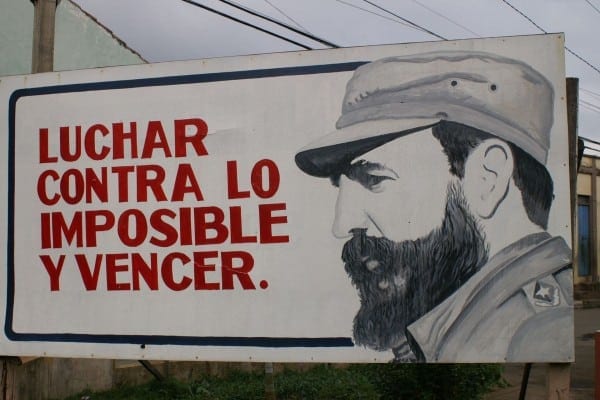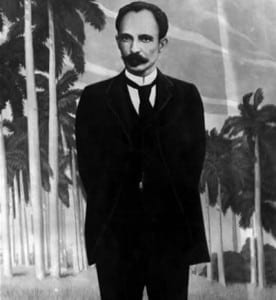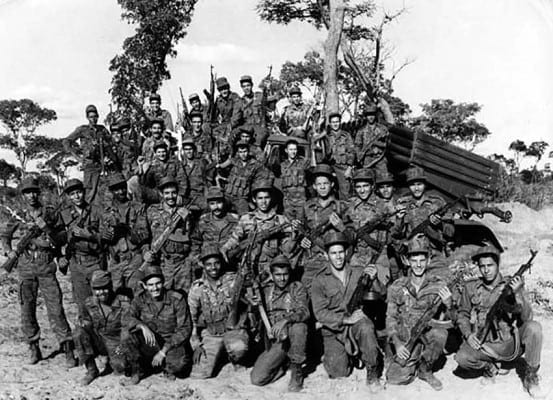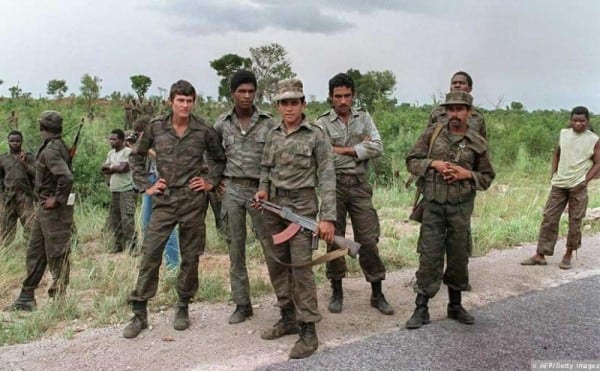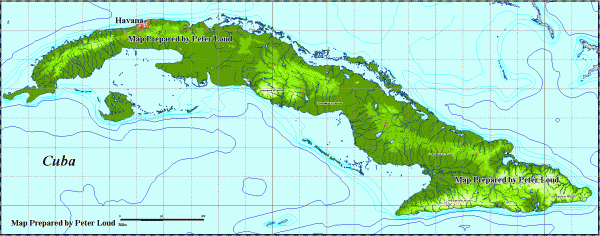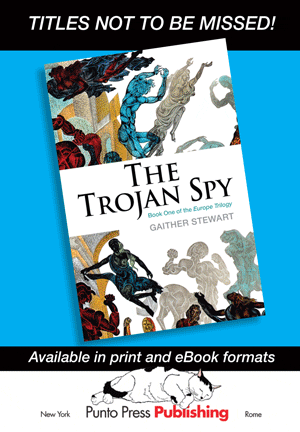Thawing Relations: Cuba’s Deeper (More Challenging) Significance
[dropcap]B[/dropcap]arack Obama, at the Summit of the Americas, wanted to bury the past. Argentinean president Cristina Fernández disagreed. Cuba was at the Summit, she proposed, not because of negotiations but because Cuba has fought more than sixty years with unprecedented dignity. That fight itself is not most notable; its explanatory philosophical traditions are needed and significant. Cuba’s history makes them believable.
1. Dignity, some say, involves knowing oneself as an end. When we possess dignity, we have value, not as mere instruments toward further purposes, however noble, but in virtue of humanness.
Conceived as such, dignity is hard. We are urged to “get the most out of yourself … in a job that is spiritually fulfilling, socially constructive, experientially diverse, emotionally enriching, self- esteem boosting, perpetually challenging and eternally edifying”. In such an age of “higher selfishness”, personal choice is all important.[i] Human meaningfulness does not motivate. Indeed, it is hardly believable.
But Cuban philosopher and revolutionary, José Martí, made “radical respect for human dignity” the goal of his 1895 independence war against Spain. The Montecristi Manifesto, political statement of the Cuban Revolutionary Party, “declares [the Party’s] faith [that it can know] . . . the reality of the ideas that produce or extinguish deeds and the reality of the deeds that are born from ideas . . . so that no man’s dignity is harmed and . . . all Cubans perceive it … as based in a profound knowledge”. Remarkably, a political movement was giving priority to an ancient and fundamental philosophical question: how to know what it means to be human.
2. Cuban history makes such motivation believable. Cuban presence in Angola, according to historian Richard Gott, was “entirely without selfish motivation”. Cuba sent 300,000 volunteers between 1975 and 1991, more than 2,000 of whom died, to push back and eventually defeat apartheid South Africa. In Pretoria, a “wall of names” commemorates those who died in the struggle against apartheid. Many Cuban names are inscribed there. No other foreign country is represented.[ii]
The United States claimed that Cuba was acting as a Soviet proxy but according to US intelligence, Castro had “no intention of subordinating himself to Soviet discipline and direction.” He criticized the Soviets as dogmatic and opportunistic, ungenerous toward Third World liberation movements, and unwilling to adequately support North Vietnam. Former US secretary of state Henry Kissinger wrote in his memoire 25 years later that Castro was “probably the most genuinely revolutionary leader then in power”[iii]
US Intelligence even identified the real motivation for Cuba’s costly involvement. Castro, it was reported, “places particular importance on maintaining a ‘principled’ foreign policy . . . [and] on questions of basic importance such as Cuba’s right and duty to support nationalist revolutionary movements and friendly governments in the Third World, Castro permits no compromise of principle for the sake of economic or political expediency.” In 1991, Cuba’s “great crusade” led Nelson Mandela to ask, “What other country can point to a record of greater selflessness than Cuba has displayed in its relations to Africa?”
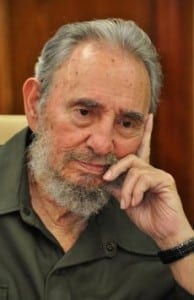 Cuba’s internationalism continues. Cuba began exporting doctors in 1963, when Cubans traveled to the newly independent Algeria. After Hurricanes George and Mitch devastated Haiti, Honduras, and Guatemala in 1998, Cuba sent 2,000 doctors and other health
Cuba’s internationalism continues. Cuba began exporting doctors in 1963, when Cubans traveled to the newly independent Algeria. After Hurricanes George and Mitch devastated Haiti, Honduras, and Guatemala in 1998, Cuba sent 2,000 doctors and other health professionals. They were replaced by other Cubans willing and able to work where no health services previously existed. After Hurricane Katrina, Cuba offered to send, at no cost, 1,586 medical personnel and 36 tons of emergency medical supplies to the United States, an offer that was turned down.[iv]
professionals. They were replaced by other Cubans willing and able to work where no health services previously existed. After Hurricane Katrina, Cuba offered to send, at no cost, 1,586 medical personnel and 36 tons of emergency medical supplies to the United States, an offer that was turned down.[iv]
In 2014, the Wall Street Journal reported that “Few have heeded the call [to fight ebola], but one country has responded in strength: Cuba.” Cuba responded without hesitation, sending more than 450 doctors and nurses, chosen from more than 15,000 volunteers, by far the largest medical mission sent by any country.
“What other country can point to a record of greater selflessness than Cuba has displayed in its relations to Africa?”—Mandela
3. Visitors to Cuba ask why. Tour guides at the Latin American School of Medical Sciences, which offers full scholarships to foreigners who could not otherwise train as doctors, explain that Cubans believe in sharing what they have, not what they have left over. The answer elicits scepticism, even derision: a nice idea but not realistic.
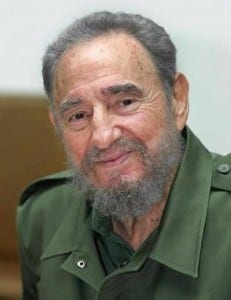 It is realistic because pursuit of dignity has practical significance. Or so argued Martí. Even before him, in the early nineteenth century, radical Cuban independence activists rejected European (liberal) philosophy emphasizing individual freedoms. They faced three empires –the UK, the US and Spain – and the “necessary evil” of slavery. Dignity –and how to know it –was politically urgent. Having experienced imperialism, they knew its dehumanizing logic.
It is realistic because pursuit of dignity has practical significance. Or so argued Martí. Even before him, in the early nineteenth century, radical Cuban independence activists rejected European (liberal) philosophy emphasizing individual freedoms. They faced three empires –the UK, the US and Spain – and the “necessary evil” of slavery. Dignity –and how to know it –was politically urgent. Having experienced imperialism, they knew its dehumanizing logic.
Martí urged Latin American children to know dignity. His famous children’s journal, The Golden Age, offers image after image of faraway places. He taught them that to know and respect themselves as human ends, they must experience sameness between themselves and others far away. Looking outward, not inward, one builds and feels human connection, a source of knowledge going beyond “the Yankee or European book”.
Explained philosophically, internationalism is a practical, not moral, obligation. Martí believed human beings are causally interconnected, both with the physical environment and with cohabitants of that environment. He believed in science: Human beings are part of nature, and we depend upon nature, including other human beings. On such a view, there is no mystery about why a poor country would pursue internationalism: We live better, and freely, when others live better, and freely.
4. [dropcap]I[/dropcap]n 1998, Fidel Castro said that Cuba’s humanist project explains Cuba’s resistance to the US financial, commercial and economic blockade. He cited the power of ideas, specifically about dignity and its practical significance. At a 2003 academic conference, Castro added that the threat of increasingly sophisticated weapons requires ideas: “Sow ideas, sow ideas, and sow ideas; sow awareness, sow awareness and sow awareness”.
SIDEBAR
Cuba’s gratitude to her heroes is concretized in Havana’s magnificent tribute to Gen. Máximo Gomez y Baez, indefatigable leader for Cuban and Latin American independence. A superb tactician and strategist, Gen. Gomez is the father of what is today called “asymmetrical warfare.”




Some will shake their heads. But to give my discipline its due, philosophers have argued for more than half a century that understanding is limited by expectations rooted in background beliefs. This means that when we don’t believe something possible, we do not see the evidence suggesting it is possible. The upshot is that challenging accepted philosophical ideas, which people rely upon unself-consciously for day-to-day deliberation, is necessary for progressive politics.
Philosophers of science argue that we only find empirical evidence to support theories if we first, to some degree, believe such theories, even without sufficient evidence. This means that theoretical innovation, and commitment to such innovation, is a prerequisite for new discoveries, or even for the questions that might motivate such discoveries.
It is not surprising, therefore, that Cuba’s successes, well-documented, do not inspire alternative paths toward human development. They are not believed. James Wolfensohn, ex-president of the World Bank, acknowledged Cuba “has done a great job on education and health” and that “it does not embarrass me to admit it”. Nonetheless, “The island continues to be ignored by both development theorists and the technocrats” designing programs to promote human development. [v]
The reason may be fear. Cuba resisted the US embargo for sixty years. It defied predictions of its imminent collapse after the disappearance of the Soviet Union. And when Fidel Castro stepped down in 2006 because of illness, Cuba again defied predictions— this time of internal squabbling and chaos. Julia Sweig, US Rockefeller senior fellow, noted a “stunning display of orderliness and seriousness” and concluded that the Cuban Revolution “rests upon far more than the charisma, authority and legend of [Raul and Fidel Castro].”

Monument commemorating Cuba’s help in the liberation of Angola from all colonialist oppression, and defeat of Apartheid South Africa’s invasion at the battle of Cuito Cuanavale (1987-1988). The protracted Battle of Cuito Cuanavale, which took place over about six months, was at that time the biggest battle on African soil since World War II.
The “far more” is at least partly philosophical, a vision of who we can be, and know ourselves as, as human beings. It predates Martí but was most radically realized by Martí, who thought political liberation does not long endure without spiritual freedom. For him, this meant acquiring the sensitivity and humility to be able to respond to beauty, whether in ideas, people or events. For only with such responsiveness can we know the unexpected, which may be humanness.
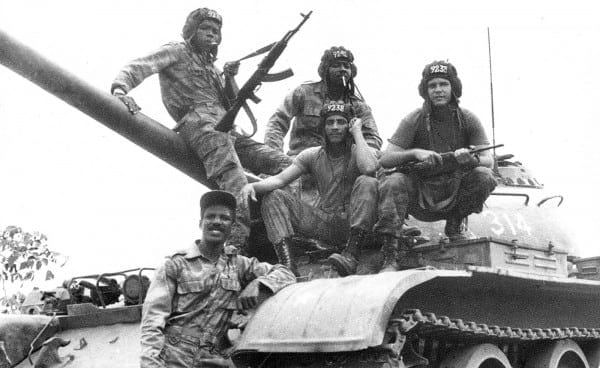
Cuban soldiers and tankers from the Camilo Cienfuegos column, fighting in Angola. The empire could never imagine that a besieged little island would have the guts to intervene in a complex war in another continent thousands of miles from home.
Selflessness and unlimited courage, plus great military skill, characterized the Cuban presence in Angola and the rest of Africa. The Cuban effort lasted almost two decades, and cost the island thousands of dead and wounded, but freedom was won. Compare that with the US throwing its enormous power at a tiny, practically defenceless nation like Grenada.
5.
[dropcap]C[/dropcap]uba’s philosophical traditions, closer in many ways to Eastern than to European philosophy, make plausible a competing conception of what is humanly possible, contradicting the now deeply entrenched belief, almost impossible to challenge in the North, that freedom is about having, not being.
Armando Hart, minister of culture during Cuba’s famous literacy campaign (1961-2), now a renowned philosopher, writes that anyone who cares about global justice in the 21st century should consider the damage done to the world by European philosophy.[vi] European philosophy, as argued by Simón Bolívar, among others, presents a naïve (at best) view of human freedom, ignoring those disqualified from the “human” part of human freedom. Worse, though, it does not allow for alternatives. We need those alternatives.
Cuba’s long struggle, and the ideas that explain it, offers such an alternative. Cuba’s ideas could be known. But it takes effort. Martí scholar, Pedro Paulo Rodríguez writes that even Latin Americans do not sufficiently acknowledge the philosophy grounding their region’s innovative development direction.[vii]
HOMAGE TO CUBA BY NICOLAS GUILLEN
Por el Mar de las Antillas
(que también Caribe llaman)
batida por olas duras
y ornada de espumas blandas,1
bajo el sol que la persigue
y el viento que la rechaza,2
cantando a lágrima viva 3
navega Cuba en su mapa:
un largo lagarto verde,
con ojos de piedra y agua.4
History inspires imagination, as Fernández suggests. And as Eduardo Galeano wrote, imagination allows us to interpret the world as what it might be, not what it is. At least occasionally, though, we need moral imagination in order to discover it. For we have to believe alternatives are possible, and needed, including philosophical ones, in order to pursue them. If we take seriously Cuban, and Latin American, history, we will benefit. But if we consider the possibility, unexpected for some, that Cuba’s resistance is morally unprecedented, offering options for human development, we will gain even more.
6.
As relations between the US and Cuba thaw, Cuba changes. Some hope it will not change much but they often miss the real reasons. In what Charles Taylor describes as the “age of authenticity”, in which personal choice is paramount, some philosophers, especially feminists, emphasize relationships and emotional sensitivity. They urge connectivity as an antidote to liberal individualism, and a source of radical knowledge. Cuba’s philosophers, especially Martí, broke that trail in this hemisphere long ago. Cuba should not turn from its philosophical traditions, urgently needed in the North.
Notes.
[i] cited in Taylor, Charles, A secular age (Cambridge: Harvard University, 2007), 473-479).
[ii] Gleijeses, Piero, Conflicting missions: Havana, Washington, and Africa, 1959–
1976 (Chapel Hill, NC: University of North Carolina, 2002) 300-327.
[iii] Gleijeses, Piero, Visions of freedom: Havana. Washington, pretoria and the struggle for southern Africa (Chapel Hill: University of North Carolina, 2013) 306, 373, 521, 525, 526
[iv] E.g. Brouwer, Steven, Revolutionary doctors (New York: Monthly Review Press, 2011)
[v] Cited in Saney, Isaac, Cuba: A revolution in motion (Blackpoint, NS: Fernwood, 2004).
[vi] Ética, cultura, política (Havana: Estudios Martianos, 2006) 174
[vii] Rodríguez, Pedro Paulo, Pensar, prever, server (Havana: Ediciones Unión, 2012) 177
Susan Babbitt is associate professor of philosophy at Queen’s University, Kingston, Canada and author of José Martí, Ernesto “Che” Guevara and Global Development Ethics: The Battle for Ideas (Palgrave MacMillan 2014).
ADDENDUM
(1) NICOLAS GUILLEN HOMAGE TO HIS CUBA
In this poem, Guillen, distinguished Cuban poet, speaks of Cuba as a long “green lizard, sailing in the Caribbean…displacing herself in her map…with eyes of stone and water.”
Un lagarto verde
Por el Mar de las Antillas
(que también Caribe llaman)
batida por olas duras
y ornada de espumas blandas,
bajo el sol que la persigue
y el viento que la rechaza,
cantando a lágrima viva
navega Cuba en su mapa:
un largo lagarto verde,
con ojos de piedra y agua.Alta corona de azúcar
le tejen agudas cañas;
no por coronada libre,
sí de su corona esclava:
reina del manto hacia fuera,
del manto adentro, vasalla,
triste como la más triste
navega Cuba en su mapa:
un largo lagarto verde,
con ojos de piedra y agua.Junto a la orilla del mar,
tú que estás en fija guardia,
fíjate, guardián marino,
en la punta de las lanzas
y en el trueno de las olas
y en el grito de las llamas
y en el lagarto despierto
sacar las uñas del mapa:
un largo lagarto verde,
con ojos de piedra y agua.Tomado de La paloma de vuelo popular, en Obra poética 1920-1972, La Habana, Instituto Cubano del Libro, 1972.
![]()
[printfriendly]
REPOSTERS NEEDED. APPLY HERE!
Get back at the lying, criminal mainstream media and its masters by reposting the truth about world events. If you like what you read on The Greanville Post help us extend its circulation by reposting this or any other article on a Facebook page or group page you belong to. Send a mail to Margo Stiles, letting her know what pages or sites you intend to cover. We MUST rely on each other to get the word out!
And remember: All captions and pullquotes are furnished by the editors, NOT the author(s).
What is $5 a month to support one of the greatest publications on the Left?
